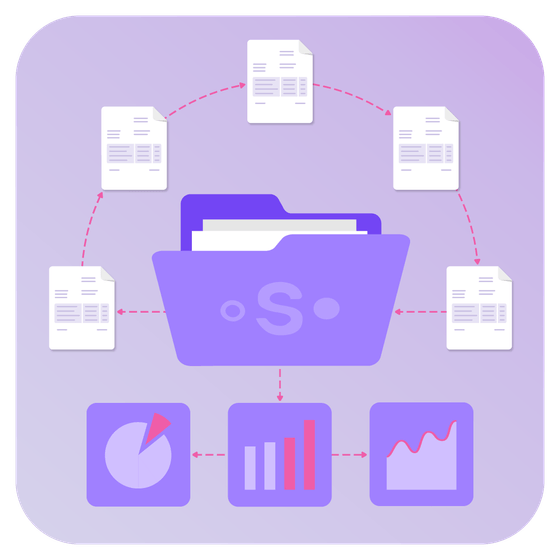Automated Processing: Speed up document handling, such as invoices or purchse orders with automated data extraction and approval workflows, reducing delays.
Minimize Errors and Frustration: Improve data accuracy and reduce rework by eliminating manual errors and inefficiencies.
Boost Productivity and Job Satisfaction: Free up your team’s time by automating repetitive tasks, allowing them to focus on high-impact, strategic work.
Audit Trail: Ensure accountability by maintaining a detailed log of all actions and approvals for every document, enhancing transparency and tracking.
Organized Data and Segregated Access: Strengthen data security by structuring documents by departments and restricting access to authorized personnel.

Cost-Efficient Data Processing: Automate data extraction and approval workflows to reduce the costs of handling large volumes of documents, minimizing reliance on manual labor.
Lower Compliance and Audit Expenses: Ensure accurate and trackable document handling to mitigate compliance risks and reduce audit-related costs.
Reduced Overhead: Automate operations to decrease ongoing expenses related to physical storage, administrative work, and resource waste.
Optimize Resource Allocation: Free up valuable staff time by automating repetitive processes, allowing your team to focus on high-value tasks that drive growth.
Accelerate Turnaround Times: Process documents faster with automated workflows, reducing delays that can lead to lost opportunities or increased costs.

Drastically Reduce Paper Usage: Cut paper consumption by up to 95% with digital workflows, significantly lowering your environmental impact.
Eliminate Redundant Copies: Go fully digital to remove the need for excessive physical copies, reducing waste and storage requirements.
Shrink Your Carbon Footprint: Minimize energy use from printing, copying, and transporting paper, contributing to a more sustainable workplace.
Simplify Recycling Efforts: Transition to digital archives to reduce paper waste and streamline recycling processes.
Champion Eco-Friendly Practices: Show your commitment to sustainability by adopting digital workflows that align with environmental goals.

Productivity Loss: Over 20% of daily productivity is lost to document-related issues, including manual data entry and inefficient workflows.
Document Search Time: Professionals spend an average of 18 minutes searching for a single document, wasting valuable time that could be better spent on high-impact tasks.
Unstructured Data Challenge: About 80-90% of enterprise data is unstructured, and this amount is doubling every three years, creating challenges in organization and accessibility.
Paper Usage Impact: The average office document is photocopied 19 times in its lifespan, while a single employee consumes as much paper as one tree every year, contributing to significant environmental waste.
Cost of Data Entry Errors: Manual data entry errors can cost businesses at least 30% or more of their revenue, highlighting the financial impact of inaccuracies.
